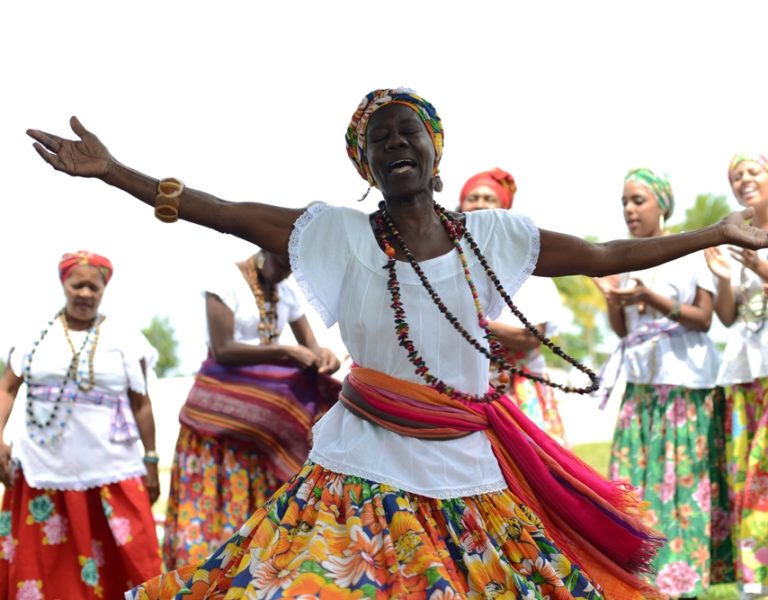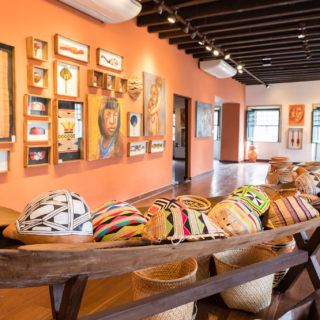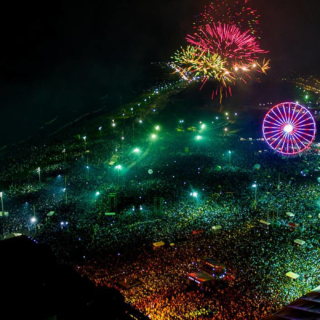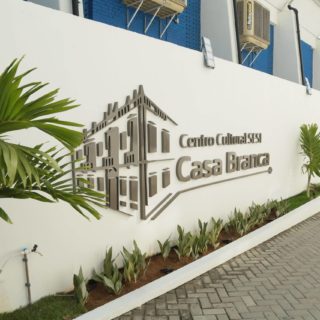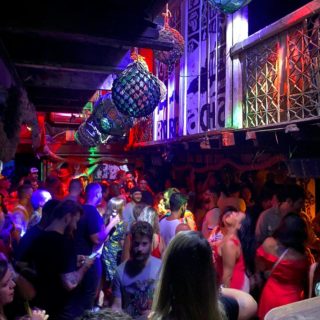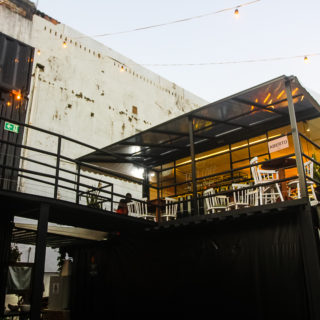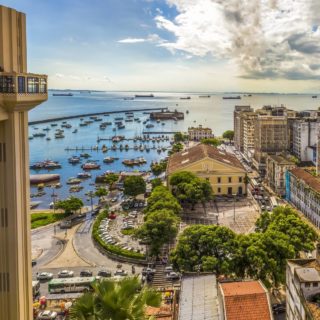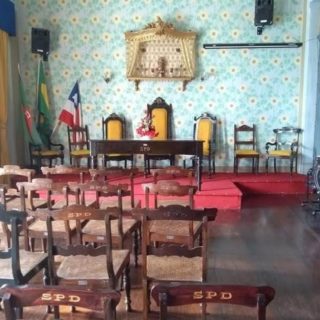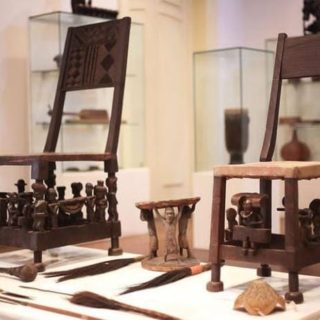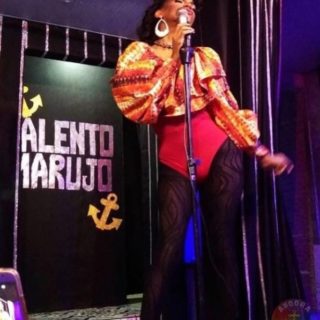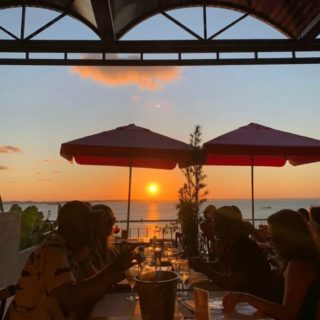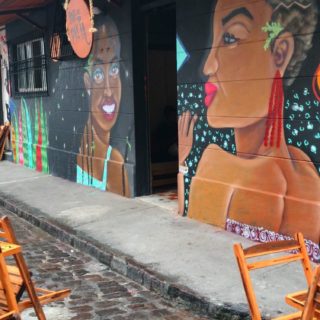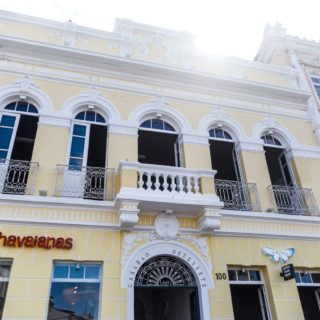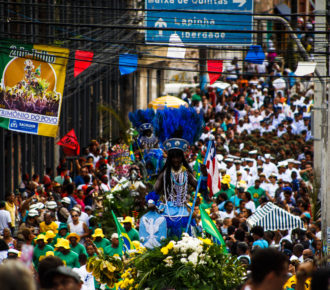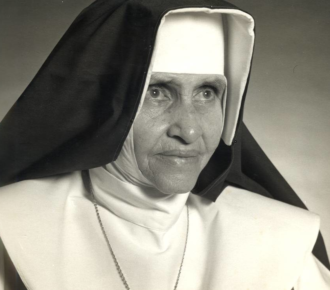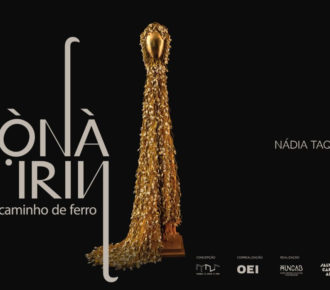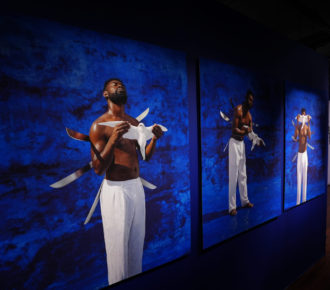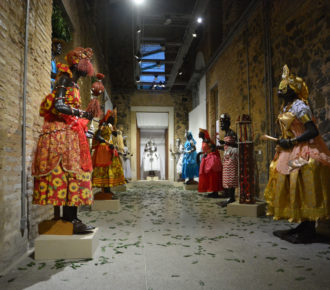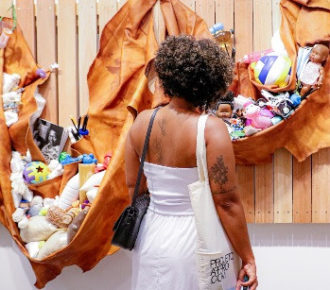
The best of Bahian beat
Samba is the result of European and African musical structures, but it was with the symbols of black Brazilian culture that samba spread throughout the national territory, becoming one of the main popular cultural manifestations in Brazil. Such is its importance that on December 2 the National Samba Day is celebrated, in honor of one of the most traditional rhythms in Brazil.
In Bahia, in particular, some of the names that made Bahian samba stand out on the national scene were Riachão, Gordurinha, Batatinha, Tião Driver, Walmir Lima, Panela, Nelson Rufino, Edil Pacheco, Roque Ferreira and Ederaldo Gentil. From the nobility of samba to its contemporary aspects, the musical genre was the origin of the three main rhythms played in our carnivals: axé, pagode baiano and samba-reggae.
Its origin was with samba de roda, samba de terreiro and batuque de umbigada, going through the partido-alto, bossa nova and samba-duro junino, until reaching samba mixed with other strands of samba-choro, samba-funk, samba-rock.
Here we will make a tour through the Bahian samba universe, between the classic and the new. We will also give you tips on places to enjoy a good batuque in Salvador, once the quarantine is over.
The “Malandro” from Bahia
Clementino Rodrigues, affectionately known as the samba musician Riachão, followed the style of irreverent samba, with humorous compositions, where he spoke inspired by what happened on everyday life.
Always wearing a beret, shirt, pants, a towel around his neck and many rings, his songs were re-recorded by Jackson do Pandeiro, Cássia Eller, Gilberto Gil and Caetano Veloso.
The master unfortunately left us at dawn on Monday, March 30, 2020, at the age of 98. Samba singer Riachão died at home, of natural causes, alongside his family. Read about the last and brilliant “Malandro” from Bahia, Riachão, at this link.
Batatinha’s elegance
Considered one of the national bambas (experts), Oscar da Penha, the Batatinha (1924-1997), was known for his melancholy way of composing, but without losing his good mood. He formed the “Quinteto Sagrado do Samba e da Boa Terra” (Sacred Quintet of Samba and Good Land), along with Riachão, Panela, Edil Pacheco and Ederaldo Gentil. Big names in Brazilian music have sung his songs like Maria Bethânia, Paulinho da Viola, Caetano Veloso and Gilberto Gil.
The circuit of the revelry in the Historical Center, during the Carnival of Salvador, takes the name Batatinha Circuit. There are no electric trios there and that’s why it is known precisely as “carnival of old times”, prioritizing samba and fanfare.
A tribute to three great Bahian sambistas
A CD record of the group Bambas de Sampa brings unpublished songs by Guiga de Ogum, Edil Pacheco and Riachão. The creator of the independent project is the musician Paulinho Timor, born in São Paulo, but from an early age a goer of the Bahia circles where samba was born and where great sambistas were produced.
The CD titled “Bambas de Sampa – Todo Mundo Tem que Falar” has 10 tracks. The phonographic record refers to the samba de roda, with emphasis on drumming and the stringed instrument, more punctuated, which is a feature of the genre in Bahia. Worth reading the full article on this link.
Chocolate da Bahia
Known for his malicious verses, Chocolate da Bahia became known on the samba and ijexá circles set at Mercado Modelo, Salvador’s tourist and musical spot at that time. He made his first authoral album in 1977, “Barraca do Chocolate”. It had texts by the writer Jorge Amado (1912 – 2001) and the composer Dorival Caymmi (1914 – 2008), published on the back cover of the original vinyl disc.
The female power
Mariene de Castro
Showing that Bahia is still a reference of samba, owner of a powerful voice, the Bahian singer and actress Mariene de Castro became known by many people by delighting the public at the closing of the Rio 2016 Olympic Games. But for the Soteropolitans, Mariene had already been showing her voice as a member of Carlinhos Brown’s Timbalada group and, in 1996, had the opportunity to perform her first solo show at Pelourinho. Since then, she has toured 20 cities in France, has won awards and is now recognized for the strength of her interpretation and the uniqueness of her vocal timbre. We stay here with her first work, “Abre Caminho”.
Ganhadeiras de Itapuã
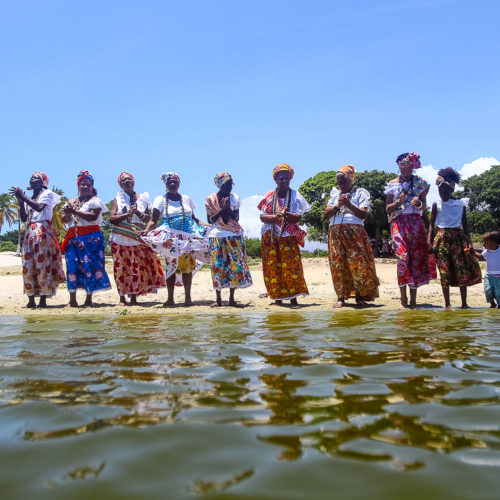
Speaking of the 2016 Olympics, the Ganhadeiras de Itapuã honored lacemakers women, being one of the highlights at the closing party of the games. The cultural group formed in 2004 keeps the old customs of Itapuã neighborhood alive and revives its culture. These are one of those pearls from Bahia that you need to know.
The group is formed by former washerwomen of Lagoa do Abaeté where, during breaks, they performed drums, sambas de roda, singing and telling stories. The group’s repertoire began primarily with affective memory.
And these women are really “retadas” (powerful). With the theme “Viradouro de Alma Lavada”, the Vice Champion of Rio Carnival 2019, Unidos do Viradouro, has the Ganhadeiras de Itapuã as a plot for the Carnival 2020. The Samba School promises to show to the general public that this is one of the most moving cultural manifestations in Bahia.
Learn more at this link.
Another very good work is that of Juliana Ribeiro, who does a vast research that brings the unusual harmony between the rhythms jongo, semba angolano, batuque, MPB, lundu, ijexá, maxixe and samba. She has already shared stage with big names of MPB as Riachão, Nelson Rufino, Paula Lima, Sandra de Sá, Edil Pacheco, Roberto Mendes, Tereza Cristina, Leci Brandão, Jota Veloso, Dudú Nobre, among others.
Gal do beco was born Carioca but is Bahian in her heart, and conquered her space in the Bahian public. In 2000 she won the title of soteropolitan citizen not only for the time she has been living here, but also for the influence on the samba culture of Bahia. Maria das Graças Silva, 65, came to live in Salvador, more specifically in Itapuã, in 79. She had a bar named Beco da Gal, known for its delicacies (especially oxtail) and samba circles of the highest musical quality. Gal has done shows with Nelson Rufino, Juliana Ribeiro, Waldir Lima and today, the new sambistas take her as godmother.
Both Juliana and Gal have already had big meetings like the ones provided by Grupo Botequim, beloved by Salvador’s young audience, eager for good music. Taking advantage of the theme, let’s list several cool places and events to hear the good old samba.
To enjoy once the social isolation phase ends
The Botequim Group is an excellent example of this new generation. They do a samba circle in Santo Antonio Além do Carmo, usually in the courtyard of Santo Antônio Além do Carmo Church. They have already received as guests Firmino de Itapuã, Gal do Beco, Tambor Mineiro and Cota Pagodeiro, among many others. It’s worth it. (@grupobotequim)
Also in Santo Antônio, Casa Ciranda has the event “Sambalá no Quintal – Rodas de Samba, alegria e amor”. Every month, they have great samba circles in a warm atmosphere and a beautiful view of All Saints Bay. Among other attractions, the group “Samba das Cumades” has already been there, a samba with an extremely transformative character, which brings the female protagonism, besides the valorization of the Bahian and authorial production. Instagram: @casaciranda Contact: contactatacacanda@gmail.com or (71) 98188-9697
Casa da Música in Itapuã fosters cultural production and free access to art through music lessons, exhibitions, soiree and chats. The ones who perform now and then are Ganhadeiras de Itapuã, besides a vast musical program. Casa da Música is in Alto do Abaeté, no number – Itapuã, Salvador – BA, 41610-510. Phone: (71) 3116-1512
The Caminhada do Samba (Samba Walk) takes place every year always one Sunday before Samba Day. It brings together the largest and most traditional samba blocks of the Bahian carnival: Alerta Geral (Miudinho), Alvorada (Bambeia), Pagode Total (É o Tchan), Amor & Paixão (Fora da Mídia), Reduto do Samba (Katulê), Vem Sambar (Grupo Mocidade), Samba Popular (A Grande Família), Proibido Proibir (Fuzukda e special participation of Terra Samba) and Q Felicidade (Patrulha do Samba).
Conceived by maestro Augusto Conceição and percussionist Lomanto Oliveira, the Vai Kem Ké Samba proposes the preservation and renewal of the legitimate Bahia samba, valuing the traditions of samba duro and samba de roda, bringing in the repertoire the sambas de caboclo and the public domain songs. They are always making a buzz in Federação neighborhood and Pelourinho Squares. Stay tuned in their networks to know the schedule.
The samba circle of Pagode Total Block takes place every Sunday at Largo da Saúde in Nazaré. There, the groups Catadinho do Samba, Samba Negro Lindo, Samba Mocidad, among others, have played. Besides that, in the revelry of 2020, they will be at Carnival on Thursday on the avenue. @blocopagodetotal. (71) 3161 – 3512
At the São Joaquim Fair, the traditional “Samba na Feira” takes place on Sundays from 10am on. There are the band Sanfeira, Grupo Bambeia, Samba de Cozinha, Pedaço de cada um, Fora da Mídia, Samba Trator, Samba de Caldeira and there has also been the participation of Gal do Beco. Pier of the São Joaquim Fair (Calçada, Salvador, Bahia).
In Rio Vermelho neighborhood, three houses stand out. The Sesi Rio Vermelho Balcony has the “Mondays of Chorinho” Project. Get ready for big performances of the choro and MPB classics. (Balcony of the Sesi Rio Vermelho, on Mondays, from 7pm on). At Casa da Mãe, in front of Casa de Iemanjá, on the waterfront, the Roda de Choro takes place on Thursdays, also with excellent musicians. At the end of 2019, one of Pelourinho’s great classics has gained a new address. The Cantina da Lua, now led by Filho Clarindo, opened a bar in Rio Vermelho. As expected, it has been frequented by samba lovers in the city. It is in Brigadeiro Faria Rocha Square – Rio Vermelho.
By Fernanda Slama
Content Coordinator

